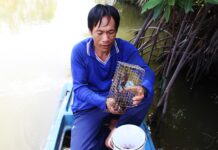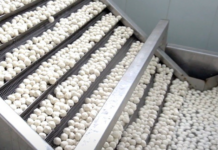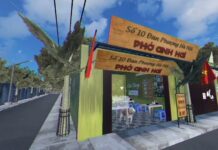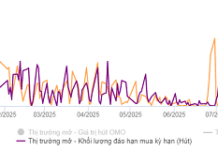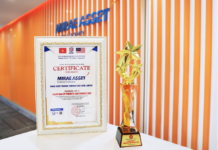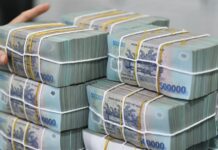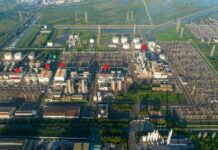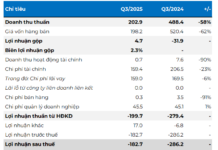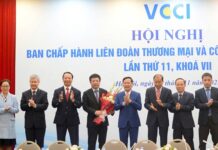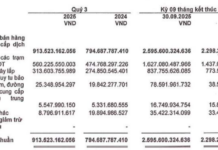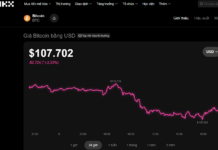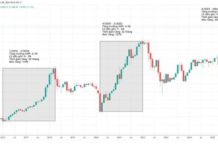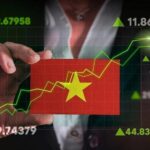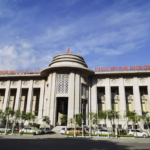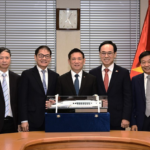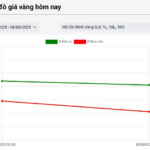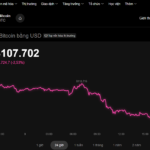Vietnam’s Ministry of Industry and Trade has released the seventh draft of a new gasoline and oil decree, featuring notable adjustments to the pricing mechanism.
Specifically, the formula for determining retail prices as per drafts seven, six, and the current decree is as follows:
Draft Seven: Market-based price = Actual sourcing cost + standard business expenses + profit + taxes (including import tax, special consumption tax, environmental protection tax, VAT, and other taxes/fees if applicable).
Draft Six: Full market price = Actual sourcing cost + actual business expenses + profit + taxes.
Current Decree (Decree 80/2023): Base price = Sourcing cost (including purchase cost + premium + standard transportation cost) + standard business expenses + standard profit + “Gasoline and Oil Price Stabilization Fund” contributions + Other fees and taxes.
Vietcap Securities believes that draft seven is less favorable than draft six. Specifically, draft seven replaces actual business expenses (in draft six) with standard expenses. This standard expense level will be announced by the government, adjusted annually according to CPI, and reviewed periodically every three years. Meanwhile, the profit factor remains essentially the same as in draft six.
Compared to the current decree, draft seven introduces a more positive mechanism for key gasoline and oil enterprises by allowing them to set selling prices independently while providing more flexibility in terms of profits, instead of the standard profit of VND 300/liter as per the current regulation.
As a result, Vietcap anticipates that these changes will support the profit recovery of Vietnam Oil and Gas Group – Petrolimex (PLX) and Vietnam Oil Corporation – PVOIL (OIL) compared to the same period in 2026.
Vietcap recognizes the risk of downward adjustments to the 2026 profit forecast, although detailed evaluation is needed.
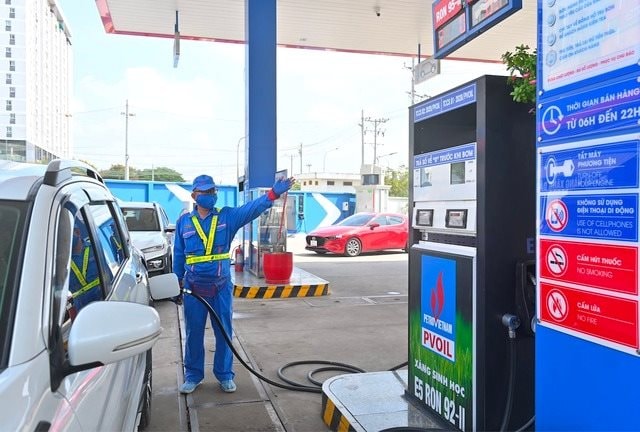
In another development, PVOIL and Petrolimex, the two largest gasoline and oil enterprises in the country, have announced that they will pilot the sale of E10 gasoline from August 1st.
According to PVOIL, the company will pilot the sale of E10 RON95 biofuel at gas stations in Hanoi and Hai Phong. After the pilot phase, the enterprise will continue to upgrade, convert, and develop E10 selling points, ready to implement the roadmap for using E10 gasoline from January 1st, 2026.
In terms of business results, in the first six months, PVOIL’s net revenue reached VND 72,696 billion, up 13% over the same period last year, while after-tax profit reached only VND 231.9 billion, down 32.8%. Compared to the 2025 plan, this result corresponds to 74.6% of the revenue target, and the pre-tax and after-tax profit targets have achieved 37.4% and 37.1%, respectively.
In the first six months, Petrolimex recorded a consolidated net revenue of VND 144,915 billion, down 2.5% compared to the same period in 2024, fulfilling 58% of the yearly plan. Pre-tax profit reached over VND 1,996 billion, down 32.5% compared to the same period, fulfilling 62% of the yearly plan. After-tax profit reached VND 1,579 billion, down 34.8% over the same period in 2024.
“State Bank: CIC does not expose customer account numbers, deposit balances, or CVV codes”
The State Bank of Vietnam (SBV) has received a report from the Vietnam Credit Information Center (CIC) regarding an incident related to credit information at the CIC. The SBV has promptly directed the CIC to report and closely coordinate with relevant state authorities to investigate and address the issue, while also ensuring the continuous and smooth operation of the CIC.
“THACO and South Korean Giant Join Forces for Urban Railway Development”
“THACO (THA) is proud to announce its proposal for a strategic partnership with Hyundai Rotem, Korea’s leading mechanical engineering conglomerate. With a shared vision for innovation and excellence, the collaboration aims to revolutionize Vietnam’s transportation landscape by developing a high-speed rail system. Through this partnership, THACO aims to harness Hyundai Rotem’s expertise in technology transfer, skill development, and localization of production to create a world-class transportation network that will drive Vietnam’s economic growth and connectivity.”

